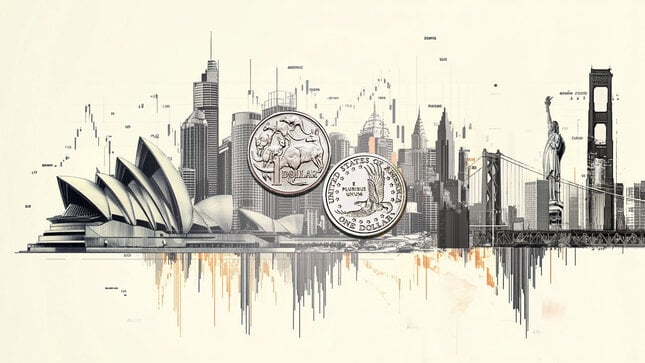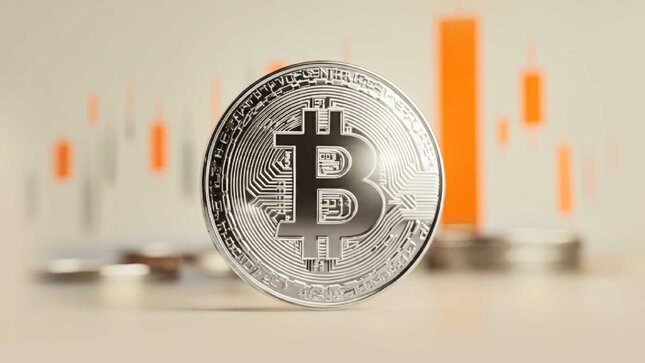USD/JPY Exchange rate
Editors’ Picks

AUD/USD flubs key technical level as holiday season drains market volume
AUD/USD strung itself along the 0.6700 handle for the second day in a row as the Aussie-Dollar pairing grapples with end-of-year market volumes restraining overall momentum. The Australian Dollar is looking upward as the Reserve Bank of Australia inches toward a fresh rate hiking cycle, with the US Dollar under pressure across the board from a dovish Federal Reserve (Fed) poised for further rate cuts through 2026.

USD/JPY treads water near 156.00 as Yen traders grapple with multiple headwinds
USD/JPY remains caught in near-term congestion just north of the 156.00 handle during the final week of 2025’s trading year. Yen traders are battling headwinds on multiple fronts, with the Bank of Japan carrying much of the vexation risk for Yen markets.

Gold stable above $4,350 as the year comes to an end
Gold price got to recover some modest ground on Tuesday, holding on to intraday gains and changing hands at $4,360 a troy ounce in the American afternoon. The bright metal showed no reaction to the release of the FOMC December meeting minutes.

Zcash treasury Cypherpunk Technologies acquires $29 million additional tokens as ZEC battles key resistance
Zcash (ZEC) treasury firm Cypherpunk Technologies announced on Tuesday that it has acquired 56,418 ZEC for $29 million. The company executed the latest purchase at an average price of $514 per ZEC.

Bitcoin Price Annual Forecast: BTC holds long-term bullish structure heading into 2026
Bitcoin (BTC) is wrapping up 2025 as one of its most eventful years, defined by unprecedented institutional participation, major regulatory developments, and extreme price volatility.
Majors
Cryptocurrencies
Signatures
USD/JPY
The USD/JPY (US Dollar Japanese Yen) currency pair is one of the 'Majors', a group of the most important currency pairs in the world. The Japanese Yen, known for its low interest rate, is frequently used in carry trades, making it one of the most traded currencies worldwide. In the USD/JPY pair, the US Dollar is the base currency and the Japanese Yen serves as the counter currency.
Trading USD/JPY is also known as trading the "ninja" or the "gopher", although the latter nickname is more frequently associated with the GBP/JPY pair. USD/JPY usually has a positive correlation with other pairs like USD/CHF and USD/CAD, as all three use the US Dollar as the base currency. The value of the pair is often influenced by interest-rate differentials between the two central banks: the Federal Reserve (Fed) and the Bank of Japan (BoJ).
HISTORIC HIGHS AND LOWS FOR USD/JPY
- All-time records: Max: 360.00 December 1970 – Min: 75.57 on 01/10/2011
- Last 5 years: Max: 161.95 on 28/06/2024 – Min: 101.18 on 06/03/2020
* Data as of December 2024
USD/JPY 2025 FORECAST
In the USD/JPY 2025 Forecast , FXStreet analyst Yohay Elam indicates that USD/JPY is likely to start the year bearish due to fears of trade wars, Donald Trump's entry into the White House and expected Federal Reserve (Fed) rate cuts. However, a bullish turnaround is anticipated in the following months as Trump's trade deals stabilize global markets, weakening the safe-haven Yen. Further gains are expected in the latter half of the year, driven by a more hawkish Fed and disappointment in the Bank of Japan’s (BoJ) inaction on rate hikes.
From a technical point of view, USD/JPY remains in a long-term uptrend for 2025, supported by its position above the 50-week SMA. Key resistance levels include 156.97, 161.81, and 170.43, with the latter aligning with the 138.2% Fibonacci extension. On the downside, support lies at 147.54, 139.73, and further down at 136.72 and 127.15.
INFLUENTIAL CURRENCIES FOR USD/JPY
The USD/JPY pair can also be impacted by other currencies, in particular the Euro (EUR) and the Chinese yuan renminbi (CNY). This group also includes the following currency pairs: EUR/USD , GBP/USD , AUD/USD , USD/CHF, NZD/USD , USD/CAD , GBP/JPY and EUR/JPY .
MOST INFLUENTIAL ORGANIZATIONS FOR USD/JPY
- The Federal Reserve (Fed) is the central bank of the United States (US) and it has two main targets: to maintain the unemployment rate at its lowest possible levels and to keep inflation around 2%. The Federal Reserve System's structure is composed of the presidentially appointed Board of Governors and the partially appointed Federal Open Market Committee (FOMC). The FOMC organizes eight scheduled meetings in a year to review economic and financial conditions. It also determines the appropriate stance of monetary policy and assesses the risks to its long-run goals of price stability and sustainable economic growth. The FOMC Minutes, which are released by the Board of Governors of the Federal Reserve weeks after the latest meeting, are a guide to the future US interest-rate policy.
- The Bank of Japan (BoJ). It is the central bank of Japan. The BoJ sets monetary policy in the country and its mandate is to issue banknotes and carry out currency and monetary control to ensure price stability, which means an inflation target of around 2%.Kazuo Ueda is the 32nd and current Governor of the BoJ. He is widely regarded as an expert on monetary policy but was considered a surprise appointment by analysts. Ueda is the first academic economist to lead the BoJ in the post-World War II era.